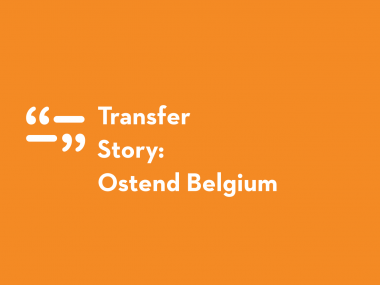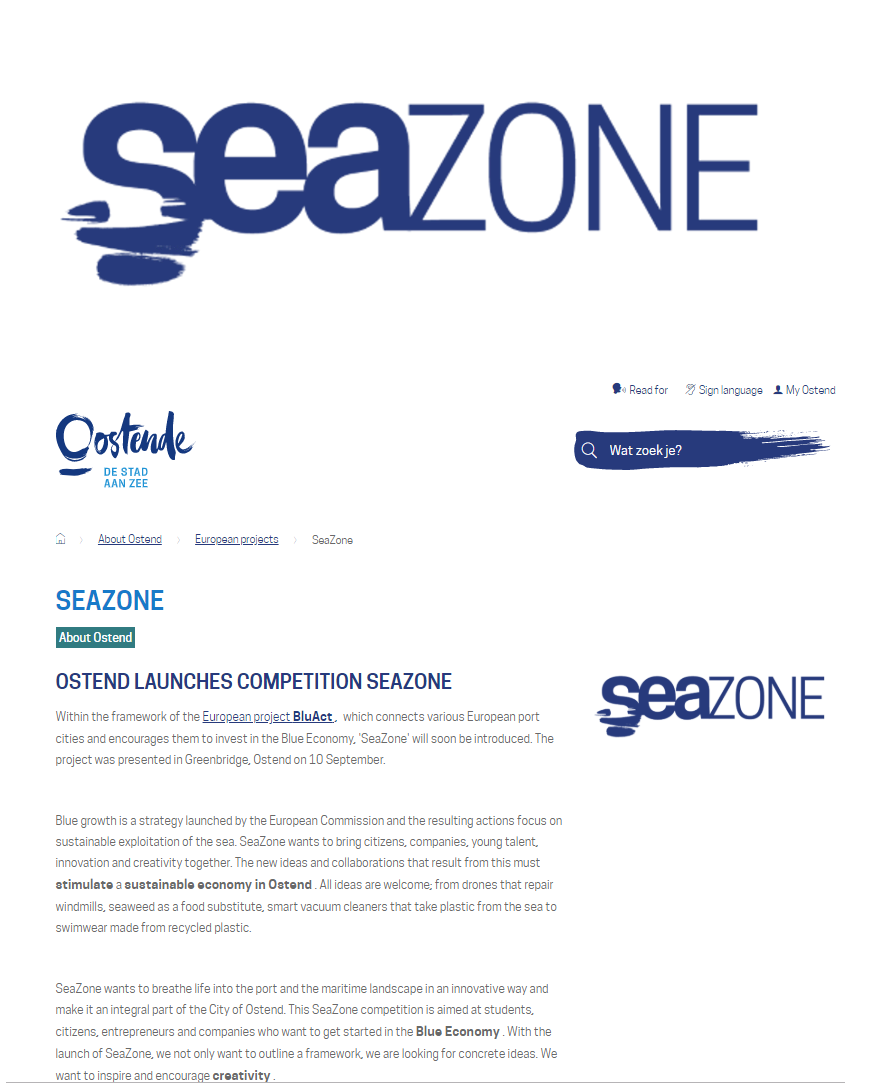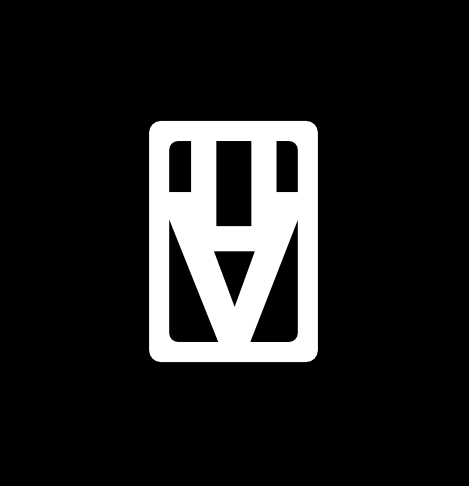Transfer Story: Ostend Belgium
Edited on
30 March 2021The Municipality of Ostend held a launch event for their competition at the GreenBridge Incubator on the 10th September 2019. The competition was structured around a SeaZone theme, a brand that was designed to act as a unifying concept in the city.

OSTEND TRANSFER STORY
December 2020
Original Ambition:
The city of Ostend joined the competition to ‘establish a solid blue growth and entrepreneurship ecosystem being Ostend SeaZone’.
The city is characterised by a strong blue economy, although the eco-system is a little fragmented. Because of out-migration and an ageing population, in the winter Ostend can become a bit of a ghost city. The city has a declining fishing industry. The Municipality wants to use the competition to create a stronger blue growth ecosystem, by strengthening the partnership in the city between the various actors.
They aspire to better connect the physical, virtual spaces and support services connected to the sea – to try and get the whole sea concepts in the city pulling together. The partners envisage they will organise low and high technical challenges.
In organising their competition, the city of Ostend broadly followed the five-stage process of the Piraeus Blue Growth Initiative.
The original timetable planned for Ostend’s competition was as follows;
- Competition Preparation: Feb 2019 – Aug 2019
- Competition Launch: June 2019
- Competition Close: Nov 2019
- Competition Delivery: Sep 2019 – Nov 2019
- Demo Day/Award Ceremony: Jan 2020
- Incubation: Feb 2020 – Dec 2020
The original goals set out in the Transfer Plan were to;
- Increased engagement of students in marine and maritime topics: 450 students enrolled in relevant programs (summerschools, universities, …);
- Increased number of businesses, start-ups related to blue growth topics settle down in Ostend: 2 innovative start-ups; 4 potential innovative start-ups for incubation; 6 innovative start-ups with marine/blue focus;
- Increased awareness among citizens of the Blue Growth ecosystem they are being part of: 5000 citizens attending events related to Ostend SeaZone, like KBSea Startit, “Ostend at anchor”;
- Obtain active involvement of the private sector within the SeaZone group advisory board: 7 enterprises joining the SeaZone network.
Successes achieved by Ostend:
The Municipality of Ostend held a launch event for their competition at the GreenBridge Incubator on the 10th September 2019. The competition was structured around a SeaZone theme, a brand that was designed to act as a unifying concept in the city.
The evaluation criteria developed for the competition emphasised links to Ostend, but also prioritised the UN’s Sustainable Development Goals (SDG’s). Weightings in the evaluation process prioritised;
- The Sustainability goals of the project (50%)
- The link to Ostend (30%)
- The Innovative character of the idea (10%)
- The impact on the SDG’s (5%)
- The impact on the climate (5%)
The overall programme for the cities Blue Growth Competition, was split into three phases;
- PHASE 1: INTAKE (From 01/09/2019 to 30/11/2019) - Submitting proposals online
- PHASE II: EVALUATION (From 01/12/2019 to 31/01/2020) - Evaluation of submitted proposals
- PHASE III: ROLL-OUT (From 01/02/2020 to 31/12/2020) - Development and incubation
The marketing material developed included branding, advertising material and the website (www.oostende.be/seazone). The competition closed on 5 January 2020 with 9 high-quality ideas submitted by this date. A pitch session was organised for 10th March 2020, with evaluation selecting 5 ‘laureates’ that have been offered a mix of personal and online mentoring.
The selection of ‘laureates’ (as opposed to ‘winners’) and the offer of a personalised mentoring and coaching programme are two features of the Ostend competition which are particularly distinctive.

Challenges Ostend experienced:
Whilst the city did well at collaborating with many of the partners in the city, one of the key challenges Ostend has experienced is getting ALL those that are interested in the Blue Economy in the city (and the wider sub-region) to pull together on the promotion of a city-wide blue growth entrepreneurship competition. The reasons for this are complex but can generally be put down to organisational trust, power and geography issues (with some of the regional partners not necessarily seeing the city as a strong influence in this space).
Some of the ways to overcome this issue might have been to establish a more powerful ULG structure (with a chairperson with strong political influence at a regional and national level) and to involve some of the larger private sector firms in the area in the ULG (as they are very active in regional structures).
Next Steps
Before starting a second competition, the city is now investigating how the blue economy can be integrated fully in the city’s new vision/mission with the purpose to better answer the several needs of the various stakeholders involved in the blue economy. The city was also planning to run a conference on Blue Tourism in late 2020, but due to covid-19 this was cancelled. Other online options are being explored. Through these activities, the city will continue to build on the Seazone concept and on the work undertaken through the Urbact Transfer Network.
 Submitted by Angelos Ploumis on
Submitted by Angelos Ploumis on
